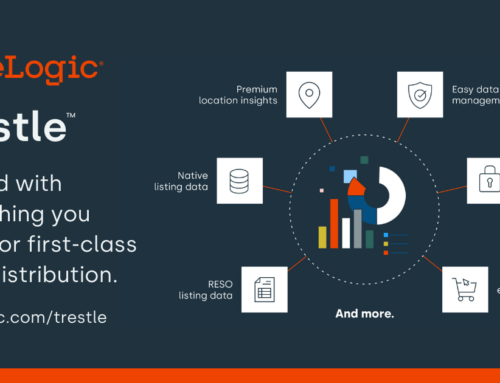Our industry needs to find meaningful ways to support new thinking and innovation. I recently put myself in the shoes of a start-up and found out just how difficult it REALLY is to leverage MLS information. 
We have made it REALLY hard for the smart 16 year old in her garage to build the next big thing for a brokerage. Frankly, even well-established tech companies have major challenges working with more than 600 organizations. Refer to my commonapp article for more on that topic.
Let’s put ourselves in the shoes of a tech start-up. They have built something interesting. They find a broker that wants to try it out. The broker says go to the MLS and apply for a data license. They are not aware of the differences between an IDX, VOW or Back Office Feed. Most don’t even know what an IDX, VOW or Back Office feed IS! They don’t know that IDX feeds can include actives, actives, pendings and solds or just actives and solds. They have no clue what a non-disclosure state is, what that means and how it affects their product in those states. They don’t know what a “RESO” is or the benefits of using a feed that is RESO Data Dictionary compliant. They may know how to leverage API’s, but don’t know the difference between a RESO Web API and one offered by another group.
The start-up diligently follows the advice of the broker. They set out on a path to get a data feed.
Here’s what happens…or more accurately what DOESN’T happen, on most MLS websites. We make it REALLY difficult for someone new to the industry to figure out how to get that data feed the broker has asked the start-up to go after.
Go to your local MLS site as a non-member without logging in and pretend you are new to the market and need to get help with a data feed. You’ll see that most MLS sites FAIL on a variety of fronts to invite a new company. We may not be doing it consciously, but our industry is definitely stopping innovation dead in its tracks by making it nearly impossible to learn how to access MLS data. This challenge is not limited to start-ups either. I was speaking to a well-established technology company that has accessed data feeds in nearly 300 markets. To this day they struggle with who to talk to, fee schedules and the unclear definitions of the types of data feeds that are available. Couple that with ever-increasing data access fees and it’s easy to argue that we are making it nearly impossible for tech companies to provide data-dependent services to brokers.
TRY it YOURSELF…pretend you are not a member of your local MLS and are trying to get information about how to secure a data feed. You’ll see what a hassle it is! I tried to find data on a few sites and had frankly, a miserable and frustrating experience.
- Nearly impossible to even find the right MLS website!
In many markets if I type in (city name) MLS it takes me to a login screen with absolutely NO information other than user name and password! In  other cases, it takes me to a brokerage masking as an MLS or worse yet, it takes me to a third party company like MLS.com or others. If I’m a start-up that is just starting to learn their way around real estate I am already really confused. Here’s an example of what I’m talking about. I typed in the words St. Louis MLS into the search bar, as an example and here’s the results. As you see the REAL MLS is nowhere in sight. I’m not trying to pick on a specific market here – the results are similar in every market that I have tried this exercise. The MLS in St. Louis is called MARIS. How would I know that if I wasn’t an industry insider? Many MLSs have names that are not directly connected to the city or cities they operate in.
other cases, it takes me to a brokerage masking as an MLS or worse yet, it takes me to a third party company like MLS.com or others. If I’m a start-up that is just starting to learn their way around real estate I am already really confused. Here’s an example of what I’m talking about. I typed in the words St. Louis MLS into the search bar, as an example and here’s the results. As you see the REAL MLS is nowhere in sight. I’m not trying to pick on a specific market here – the results are similar in every market that I have tried this exercise. The MLS in St. Louis is called MARIS. How would I know that if I wasn’t an industry insider? Many MLSs have names that are not directly connected to the city or cities they operate in.
Bottomline, if we’re going to encourage innovation, we need to walk a mile of the shoes of a start-up or even someone that does not know the specific names of MLSs in each market around the country they cannot even find the right website to go to! There is no public venue available today that shows every MLS in the country with a link to their website and the person to contact to license data.
- Nearly impossible to learn about/apply for a data feed!
Once a tech company finally finds the right website that is the ACTUAL multiple listing service, then they have to find the way to understand the types of data feeds available today. As we all know, start-ups should build to the RESO Data Dictionary and leverage the RESO Web API. Take a look at the stellar time-savings and ease of use MyTheo experienced using the RESO Web API.
Go to your local MLS site WITHOUT logging in and see how difficult it is to find information about how to apply for a data feed. On most of the MLS sites I checked you cannot even find a way to learn about or apply to license a data feed. This is compounded for the 75% of MLSs owned by an Associations. Start-ups don’t even know they have to go to the Association website to find the MLS section and then hunt around there. Many of those Association websites not only don’t have an MLS section or a data section.
On many sites that I visit, if you’re lucky enough to find a section that discusses data feeds without having to log-in, its usually just an IDX licensing approval form with no explanation of what IDX is and how it is used. If you don’t even know what an IDX or VOW feed is or don’t even know what RETS or the RESO API refers to, how is a PDF application going to help?
 Ideally, there would a section providing an overview of an IDX, VOW, Back Office and RESO-compliant feed. MRED does a nice job of putting Data Delivery front and center on the home page of their website. They also have a really nice Q and A section that answers several key questions about data access. MRED also includes several documents related to data feeds to make it easier for a start-up to get in the game. MRED also recommends a Web API as the best method for accessing MLS data. Even though they recommend the Web API as the preferred method of data distribution it does not clearly point out the advantages of a RESO compliant data feed, especially for start-ups that are still building out their solution.
Ideally, there would a section providing an overview of an IDX, VOW, Back Office and RESO-compliant feed. MRED does a nice job of putting Data Delivery front and center on the home page of their website. They also have a really nice Q and A section that answers several key questions about data access. MRED also includes several documents related to data feeds to make it easier for a start-up to get in the game. MRED also recommends a Web API as the best method for accessing MLS data. Even though they recommend the Web API as the preferred method of data distribution it does not clearly point out the advantages of a RESO compliant data feed, especially for start-ups that are still building out their solution.
There could also be a data WIKI available and an open-ended form that encourages tech companies to ask questions. MyFloridaRegionalMLS has built a great information section on their site to clarify data licensing from MLSs. They do a great job with this, but the section could be even better if it included a section about the value of RESO data feeds.
- No Specific Data Expert/Support person identified
Every MLS website should also include the data expert in the company along with a phone number, email address and even hours of availability. I was not able to find many websites that have a phone number and a person to contact for questions. And for the few that do have contact information it is a generic email like “info@”or rets@ and a generic phone number. I did not find one website that actually calls out the specific individual within the MLS that is most knowledgeable about data feeds. How can a tech company support a broker when they don’t even know who to talk to? Provide them with a specific person that is the most up to date on data feeds to help answer their questions.
- No promotion of the FREE Developer Reference Server
The Austin Board of REALTORS® and the Real Estate Standards Organization (RESO) collaborated to offer a groundbreaking real estate technology solution: the Developer Reference Servers.
Developers have a choice of solutions or can use both to access Austin area compendium of listing data from the previous year pulled directly from the ABoR MLS.
- Powered by theCoreLogic Trestle™ platform, the Developer Reference Server gives developers access to RESO Platinum Certified Data Dictionary compliant data via the Web API or via the RETS transport protocol.
Tech companies can also get normalized access to real estate data and experience the full power of OData functionality with Bridge Interactive’s Platinum certified RESO Web API.
Does your MLS promote this powerful and FREE resource to help start-ups get up to speed on the best way to leverage standardized information? I have not found any MLSs so far that point to this powerful way to encourage innovation in our industry.
- Does the site promote the advantages of RESO or take credit for the organization’s RESO Certification level?
I have looked at countless MLS websites looking for one that overtly promotes the value of a RESO data feed and helps a newbie or even a broker understand the differences and advantages of using standardized data over RETS. I am sure that there are some out there, but I haven’t found one yet. If you are promoting RESO please send me a link to your site so I can share it with others! Every MLS should also promote the link from the RESO website that shows what MLSs are RESO certified to help make it easier for developers and entrepreneurs.
There is a FREE RESO Marketing Toolkit available to help build the content you need. To date few MLSs have taken advantage of this comprehensive and valuable resource.
Sometimes the devil is in the details when it comes to supporting broker innovation. Here’s one simple, but very important way every MLS can help the cause. We need to make it easier for tech companies to get the basic information they need to leverage the data that brokers and their agents have spent countless hours gathering.
I believe that every MLS has the responsibility to support all of the tech companies that are trying to do the right thing for brokers. After all, brokers are YOUR clients too!
Let me know what you find when you check your favorite MLSs website!





I completely agree! It’s about time the MLSs understand that helping tech vendors is equally as important as their focus on helping brokers understand their existing and sometimes older technology. It’s very frustrating to a tech vendor who wants to deliver wonderful solutions only to be given the run around by the MLSs. Helping tech vendors is actually helping the broker members of their MLS. It amazing me they haven’t figured that out yet, and I can only wonder why.
Great article about these very real challenges. This is a crazy scenario if you are creating unique solutions for displaying mls data. Even worse if you want to access the data for analytics. #mlsBlackHole
The process, or lack of a process, is very frustrating for tech providers. You hit it on the head with not knowing who to contact being a pain point. There are some RESO certified data aggregation platforms with functionality to make the tech vendor application process easier, the problem is the majority of the MLSs don’t even reply to the applications submitted through these platforms. I would also mention that there are lot of tech vendors that service individual agents and teams for transaction management, accounting, various marketing tools, etc. Agents and teams want the ability to send their listing data to their tech vendors without the tech vendor first needing to go through a very tedious process to try to secure an expensive MLS wide data licensing agreement agreement with their MLS. It would be nice if a distinction could be made in price and approval process between tech vendors that are using full MLS data for consumer facing home search type applications vs those who only need limited specific listing information for back office productivity tools for individual agents/teams. The MLSs makes it real tough on their members that want to use these types of services.
I would rephrase the title/question of the post. Why do MLSs and Portals and Brokers and NAR and Brokers and Agents and (…) Make it so hard to innovate. The short answer is another question: How can anyone expect innovation within an industry laden with conflicts of interest on jargon full of oxymorons (dual agent for example). Install transparency into the regulating institutions … then innovate will blossom.
I maintain it is MLS subscribers, not MLS providers who make innovation difficult. The reluctance of smaller Boards of REALTORS to consolidate their MLS’s in order to gain the economies of scale that make innovation flourish is a major factor. The reluctance of many REALTORS to embrace information sharing arrangements with major players like Zillow and REALTOR.com is also another impediment.
The MLS is not a technology company incubator. Regional MLS’s have the financial resources to provide subscribers with a multitude of already developed tools as part of a reasonable subscription price.
Until all the MLSs are FORCED to listen to their individual broker/agent member wishes, new technologies will find it impossible to enter this market. The MLSs, Black Knight and CoreLogic and other tech incumbents DON’T WANT NEW TECHNOLOGIES PLAIN AND SIMPLE!!!!! Until the agents and brokers wake up to that fact, this market will continue to a fractured, inefficient market.
It’s not just the ‘data feed.’ Look at how difficult it has been for Bridge Interactive and even Upstream to get an API for LISTING DATA ENTRY INTO the MLS systems.
NAR let’s them get away with it. There’s a saying, “You can’t serve two masters.” Either the agents and brokers are in charge, or NAR, the 650 MLS and their legacy tech providers are. Plain and simple.
NAR collects $250m a year from agents and brokers just to make their lives more difficult. And its the home buying and selling public who are paying the price ultimately.
NAR, and the MLSs should be ashamed (not likely) and someone should ask the FTC, DOJ and state legislators to intervene.
The brokers screwed up when they joined forces with the 650 MLSs to put together the Broker Pubic Portal. They should have euthanized them instead.
[…] Marilyn Wilson of the WAV Group sits on the front lines of brokerage companies seeking to innovate and finding themselves up against a brick wall. She channels the angst of industry opportunists and the governance challenges they face: […]
[…] Marilyn Wilson of the WAV Group sits at the entrance strains of brokerage companies in quest of to innovate and finding themselves up against a brick wall. She channels the angst of trade opportunists and the governance demanding situations they face: […]
[…] Marilyn Wilson of the WAV Group sits on the front lines of brokerage companies seeking to innovate and finding themselves up against a brick wall. She channels the angst of industry opportunists and the governance challenges they face: […]
[…] Marilyn Wilson of the WAV Group sits on the front lines of brokerage companies seeking to innovate and finding themselves up against a brick wall. She channels the angst of industry opportunists and the governance challenges they face: […]